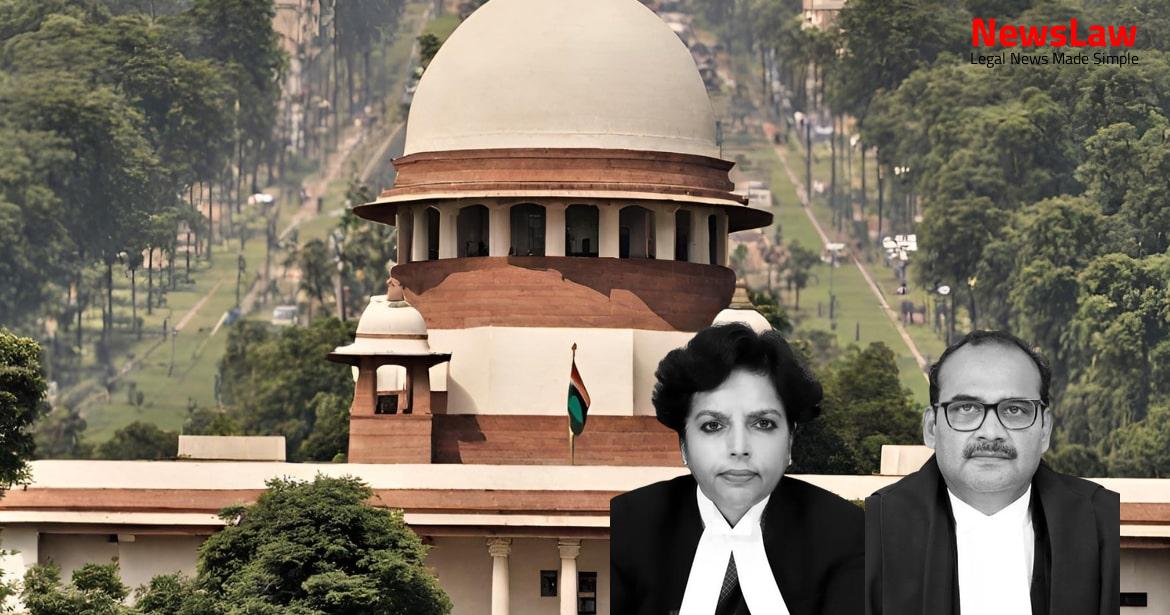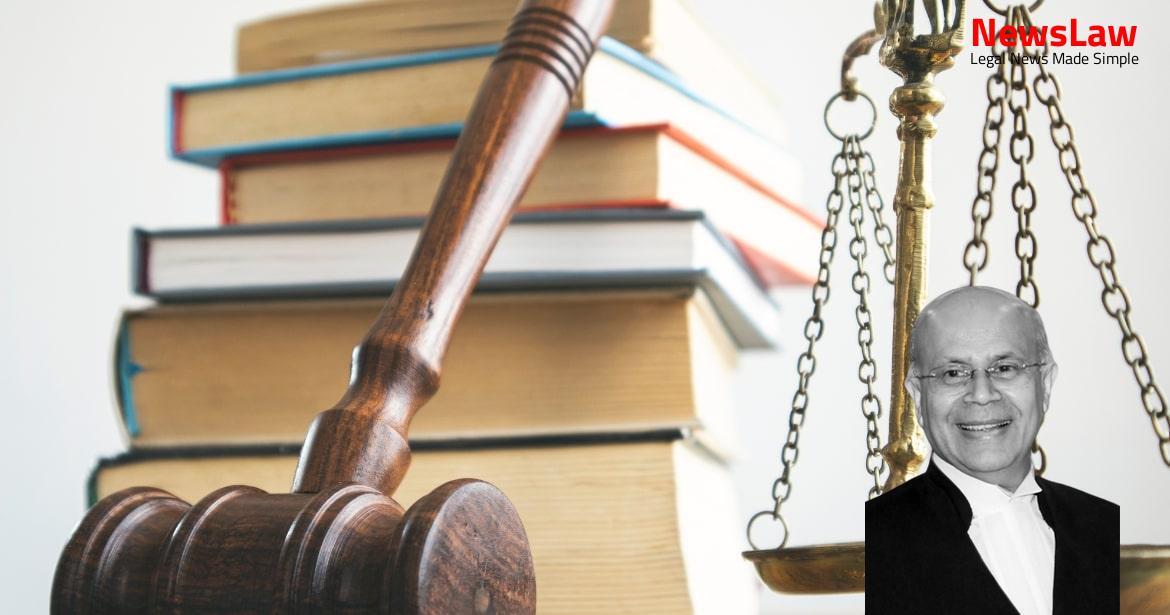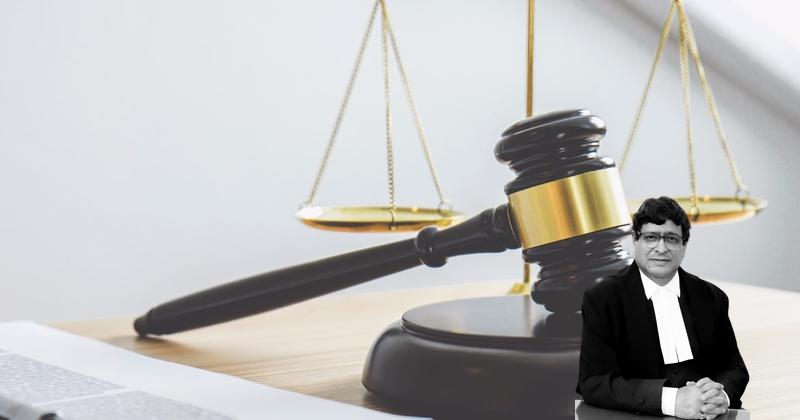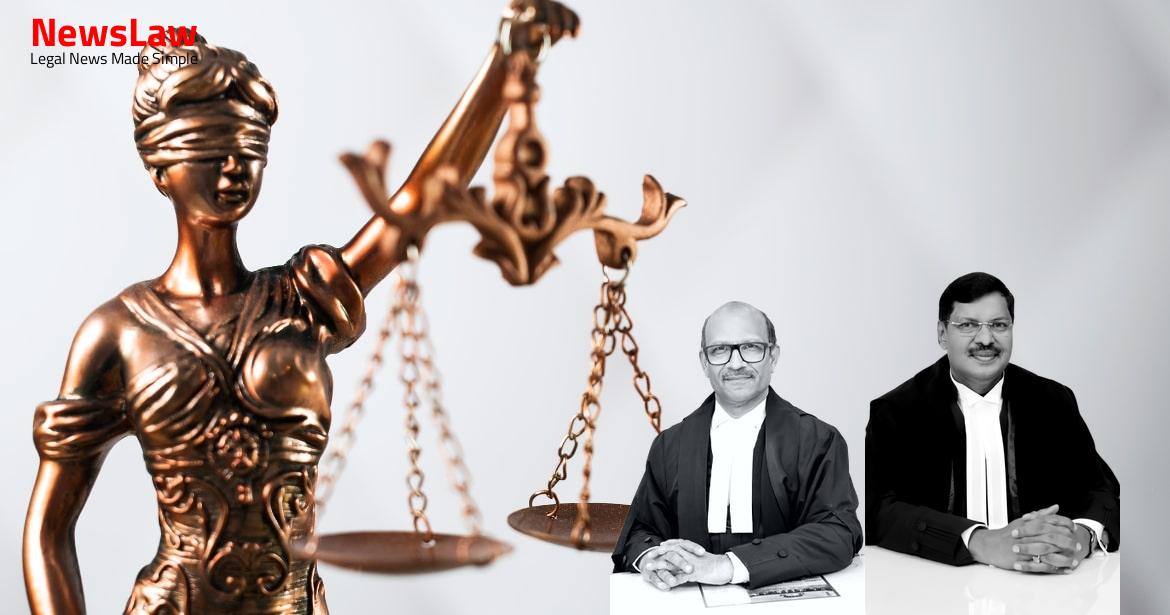Delving into the nuanced legal analysis by the High Court regarding the admissibility of deceased statements in an IPC case. The focal point is on Section 32 of the Evidence Act, which governs the scope of such evidence. This case underscores the significance of legal scrutiny in determining the admissibility of evidence, particularly in cases where the cause of death is a pivotal factor. Stay tuned to unravel the intricate legal framework surrounding deceased statements in criminal proceedings.
Facts
- High Court partially allowed the Revision Petition filed by the appellant-husband.
- Appellant and his mother’s conviction and sentence were confirmed.
- Appellant was acquitted under Section 304B of the IPC but convicted under Section 498A.
- The sentence for the appellant was reduced to one year of rigorous imprisonment.
- The sentence for appellant’s mother was reduced to one month of rigorous imprisonment.
- The deceased attempted suicide by consuming Benzyl Hexa Chloride powder on 11.02.1996 due to mental harassment by the accused persons.
- After the marriage, the deceased resided with the appellant and his family members at their matrimonial home.
- The appellant and his mother filed a Criminal Revision Petition before the High Court of Kerala.
- Allegations state that the appellant and his family members harassed the deceased and demanded additional dowry.
- Despite an agreement, the harassment continued, leading the deceased to commit suicide by hanging on 21.10.1996 at her own home.
- The prosecution charged the appellant, his parents, and his two brothers under Sections 304B and 498A of the IPC.
- Subsequent mediation between the parties resulted in a settlement where the deceased continued to reside at the house of the accused.
Also Read: Balancing Power and Transparency: Electoral Bonds Struck Down, Disclosure Mandated
Arguments
- Suicide note and other statements by the deceased cannot be relied upon under Section 498A of the IPC
- Evidence of PW-3 (mother of the deceased) is contradictory and unreliable
- Appellant argues that there is no credible evidence to convict him under Section 498A of the IPC
- Appellant was acquitted under Section 304B by the High Court, so deceased statements should not have been relied upon for Section 498A conviction
- Discussion on the admissibility of statements made by a deceased person under Section 32 of the Evidence Act, particularly Section 32(1)
- The issue at hand is whether the case falls within the scope of Section 32(1) of the Evidence Act.
- The condition for invoking Section 32(1) is that the cause of the deceased’s death must come into question in the case.
- Since the appellant was acquitted under Section 304B of the IPC and there is no appeal challenging it, the case only pertains to Section 498A of the IPC.
- As a result, the cause of the deceased’s death is no longer in question in the present case.
- The appellant’s counsel cited the case of Gananath Pattnaik v. State of Orissa to support their argument.
Also Read: Recall of Resolution Plan Approval: Legal Analysis
Analysis
- Section 32(1) of the Evidence Act is commonly known as the ‘dying declaration’ section.
- The phrase ‘dying declaration’ is not explicitly mentioned in the Evidence Act.
- This section applies when a person makes a statement about the cause of their death or any circumstances of the transaction that led to their death, in cases where the cause of death is in question.
- Such statements are considered relevant regardless of whether the person making them was expecting death at the time or not, and regardless of the nature of the legal proceeding in which the cause of death is being investigated.
- The admissibility of dying declarations in cases where the cause of the deceased’s death comes into question.
- Pre-conditions that must be met before admitting evidence of a deceased person.
- The wide scope of Section 32(1) of the Indian Evidence Act in admitting statements of the deceased.
- The relevance of statements relating to the cause of death, regardless of the nature of the proceeding.
- The admissibility of such statements even in cases of rape, not limited to homicide charges.
- The importance of scrutinizing evidence from related or interested witnesses.
- The necessity of evidence relating to circumstances of the transaction leading to the death of the deceased.
- The proximate relation of circumstances to the actual occurrence, even in cases of prolonged events.
- The significance of the transaction that resulted in the death of the deceased for admissibility of evidence.
- The relevance of statements made by the deceased regarding the events leading to their death.
- Section 32(1) of the Evidence Act is an exception to the rule of hearsay and makes admissible the statement of a person who dies, whether the death is a homicide or suicide, provided the statement relates to the cause of death or exhibits circumstances leading to the death.
- The test of proximity cannot be too literally of universal application and must not be confined in a strict manner.
- The cause of death must come into question in a case for evidence to be admissible under Section 32(1) of the Evidence Act.
- The purpose for admitting evidence should be part of the ‘circumstances of the transaction’ relating to the death.
- The phrase ‘circumstances of the transaction’ has been interpreted by the Privy Council in Pakala Narayana Swami v. King-Emperor.
- Illustration (a) to Section 32 of the Evidence Act refers to a statement made by a deceased in a rape case which may be admitted under the section.
- Statements made by the deceased in cases concerning charges under Sections 302, 392, and 397 of the IPC have been upheld as admissible under Section 32(1) of the Evidence Act.
- Judgments indicating that evidence of the deceased cannot be admitted under Section 32(1) to prove a charge under Section 498A of the IPC if the accused is acquitted of the death-related charge have been overruled to a limited extent.
- The admissibility of a statement in a proceeding with multiple charges, where one charge directly relates to the death of a declarant and the other does not, can still be admitted if the cause of death is material in the transaction.
- High Court confirmed the appellant’s conviction under Section 498A of the IPC.
- The appellant was sentenced to undergo rigorous imprisonment for one year.
- Counsel for the appellant claimed testimonies of witnesses should be disregarded as they were related.
- No valid reason was presented to disbelieve the testimonies of witnesses.
- The Court did not find the submission acceptable.
Decision
- The appeal has been dismissed.
- The bail bonds of the appellant have been canceled.
- The appellant is directed to surrender within one week before the concerned authorities to serve the remaining period of sentence.
Case Title: SURENDRAN Vs. THE STATE OF KERALA (2022 INSC 566)
Case Number: Crl.A. No.-001080-001080 / 2019



